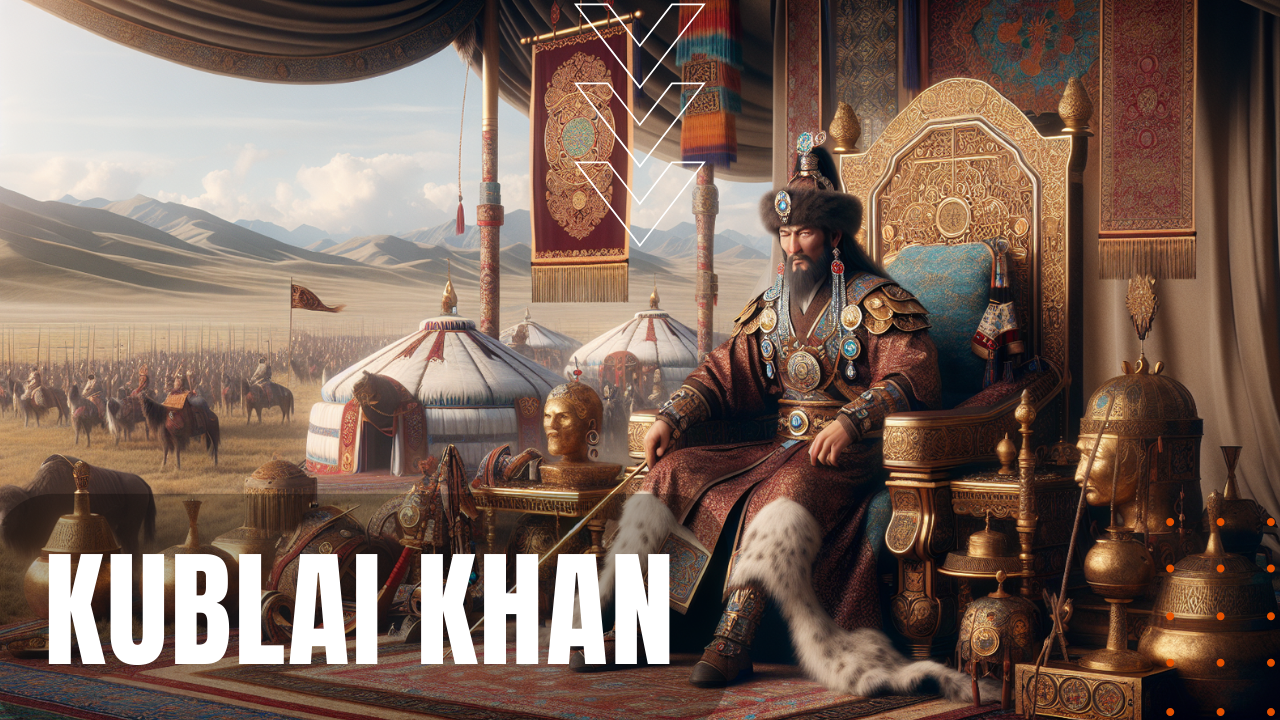Kublai Khan

Born in 1215 into a nomadic Mongol clan living on the Mongolian-Manchurian steppe, Kublai Khan was a grandson of Genghis Khan, who had expanded his empire from the Caspian Sea in the west to the Yellow and South China Seas in the east, before capturing present-day Beijing during Kublai Khan’s first year of life. Educated in the art of warfare as well Mongolian reading and writing, Chinese philosophy and culture, at age seventeen, Kublai Khan was granted a fiefdom of some 10,000 households in the Hubei Province of China, until his eldest brother Mongke Khan named Kublai viceroy of northern China in 1252, with orders to attack the Yunnan Province, with the goal of capturing the Dali kingdom.
Long Preparation
Preparing for a year, Kublai Khan spent the following three years battling the Dali until his victory in 1256, establishing a new northern capital at Shang-tu, which would soon be misinterpreted by European traders as Xanadu. After Mongke died in battle against Song Dynasty defenders in 1259, a civil war broke out between supporters of Mongke’s younger brother, Arik Boke, and those in favor of Kublai Khan, which eventually ended in Boke’s surrender in 1264, giving Kublai the title of The Great Khan. Establishing his capital in present-day Beijing, with a goal of unifying China under one kingdom, Kublai Khan had conquered the last Song loyalist by 1279, becoming the first foreigner to rule China in his proclaimed Yuan Dynasty. Considered by most scholars to be a relatively wise and benevolent ruler, Kublai Khan undertook vast infrastructure improvements, including extensions to the Grand Canal and a more efficient postal system, at the same time promoting religious tolerance and scientific advancement.
End of Meritocracy
On the down side, however, Kublai Khan abandoned the Song Dynasty’s long tradition of hiring civil servants based on merit rather than nepotism or cronyism, establishing a class system that placed Mongols on top, followed by Central Asians and Northern and Southern Chinese at the bottom, where they were heavily taxed to pay for Kublai Khan’s failed military invasion attempts against Japan, Burma and Vietnam. After his death in 1294, a devastating progression of famines, plagues and flooding along the Yellow River led to hyper-inflation and widespread rebellion after government officials flooded the Chinese economy with too much worthless paper money, leading to the Red Turban Rebellion and the ascension of the Ming Dynasty, making Kublai Khan, the first successful foreign emperor of mainland China.
